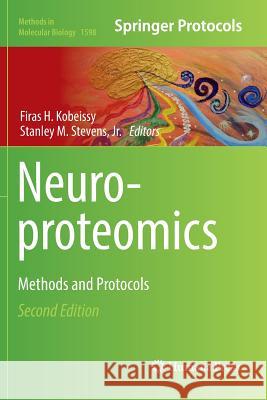Neuroproteomics: Methods and Protocols » książka
topmenu
Neuroproteomics: Methods and Protocols
ISBN-13: 9781493983490 / Angielski / Miękka / 2018 / 424 str.
Kategorie BISAC:
Wydawca:
Humana Press
Seria wydawnicza:
Język:
Angielski
ISBN-13:
9781493983490
Rok wydania:
2018
Wydanie:
Softcover Repri
Ilość stron:
424
Waga:
0.76 kg
Wymiary:
25.4 x 17.78 x 2.29
Oprawa:
Miękka
Wolumenów:
01
Dodatkowe informacje:
Wydanie ilustrowane











